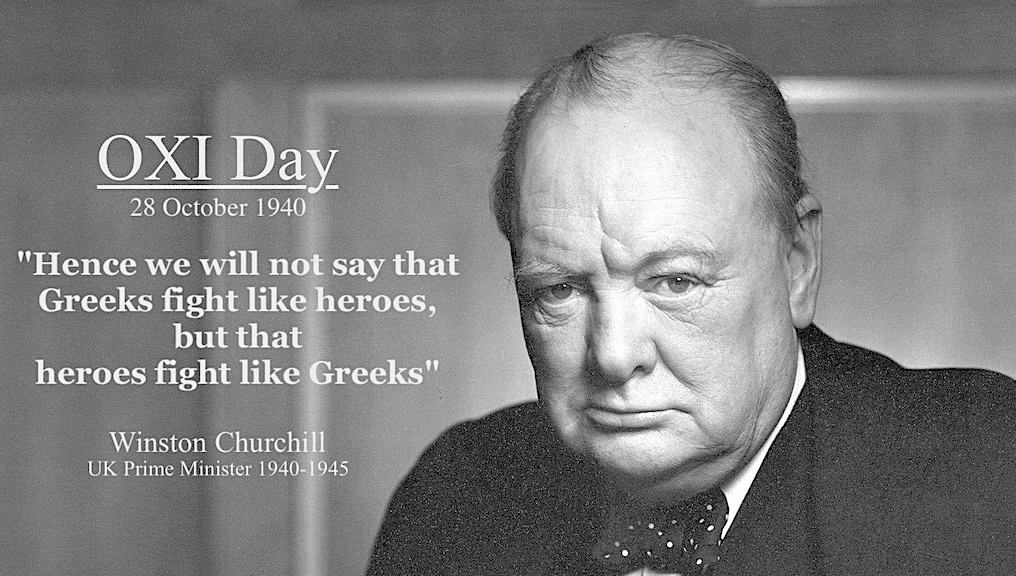The Greeks became renowned worldwide for their bravery and steadfast resistance during the Italian, Bulgarian, and German invasions of 1940 and 1941, as well as throughout the harsh years of Axis occupation.
Notable figures include Winston Churchill, Adolf Hitler, Franklin Roosevelt, Joseph Stalin, George VI, and Charles de Gaulle.
Winston Churchill:
"Until now, we used to say that the Greeks fight like heroes. Now we shall say: The heroes fight like Greeks." (Radio broadcast October 1940, in the first days of the Greco-Italian war).
"The word heroism I am afraid does not render the least of those acts of self-sacrifice of the Greeks, which were the defining factor in the victorious outcome of the common struggle of the nations, during WWII, for the human freedom and dignity. If it were not for the bravery of the Greeks and their courage, the outcome of WWII would be undetermined." (British Parliament, April 24, 1941).
Adolf Hitler:
"For the sake of historical truth I must verify that only the Greeks, of all the adversaries who confronted us, fought with bold courage and highest disregard of death. " (speech to Reichstag on May 4, 1941).
Franklin Roosevelt:
"The heroic struggle of the Greek people... against Germany 's attack, after she so thunderously defeated the Italians in their attempt to invade the Greek soil, filled the hearts of the American people with enthusiasm and moved their compassion."
(US Congress, April 25, 1941)
"On the 28th of October 1940 Greece was given a deadline of three hours to decide on war or peace. But even if a three day or a three week or a three year were given, the response would have been the same. The Greeks taught dignity throughout the centuries. When the entire world had lost all hope, the Greek people dared to question the invincibility of the German menace raising against it the proud spirit of freedom." (US Congress, June 10, 1943).
Joseph Stalin:
"I am sorry because I am getting old and I shall not live long to thank the Greek People, whose resistance decided WWII." (Moscow radio broadcast on January 3, 1943, after the victory of Stalingrad and the capitulation of marshal Paulus)
George VI (Great Britain):
"The magnificent struggle of Greece was the first big turn of WWII" (Parliament in May 1945)
Charles de Gaul:
"I am unable to give the proper breadth of gratitude I feel for the heroic resistance of the People and the leaders of Greece." (French Parliament after the end of WWII).
The Greco-Italian War began on October 28, 1940, when Greek Prime Minister Ioannis Metaxas rejected Italian Fascist leader Benito Mussolini’s ultimatum to allow his troops to transit Greece.
Metaxas’ famous rejection is now celebrated in Greece, Cyprus, and throughout the diaspora in the annual celebration of OXI Day.
Upon Metaxas’ refusal, Mussolini’s forces invaded Greece, which is widely considered a huge disaster of military miscalculation, as the Greek soldiers kept the Italians back with unbending tenacity.
After the fiasco, Mussolini even commented that “the war with Greece proved that nothing is firm in the military and that surprises always await us.”
READ MORE: Vassilios Tsavaliaris was the first fallen Soldier of the 1940 Greco-Italian War.
Stay updated with the latest news from Greece and around the world on greekcitytimes.com.
Contact our newsroom to share your updates, stories, photos, or videos. Follow GCT on Google News and Apple News.


